

Whenever I tell my fellow Americans I have been to Pakistan — twice — their reaction indicates that I must be crazy or clueless. Yes, it can be a dangerous place. Heed the warnings from the US State Department. But it’s possible to visit Pakistan and enjoy the experience.
Friends in Secure Places
This is not a country where a Western visitor can stroll around and explore at will. On my first visit in 2012, I was with a group of American journalists escorted by the East-West Center and a Pakistani partner organization, PILDAT. In 2014, I was on a teaching grant from the US State Department, which took precautions for my safety whenever I was scheduled to leave the hotel. In order to get out of the security cocoon and see something, you need local friends who know the territory and are willing to spend time showing you around while looking out for your safety. Having friends on the inside will allow you to discover places like the Karachi Boat Club, a riverside escape from the craziness of the city, but for members only.
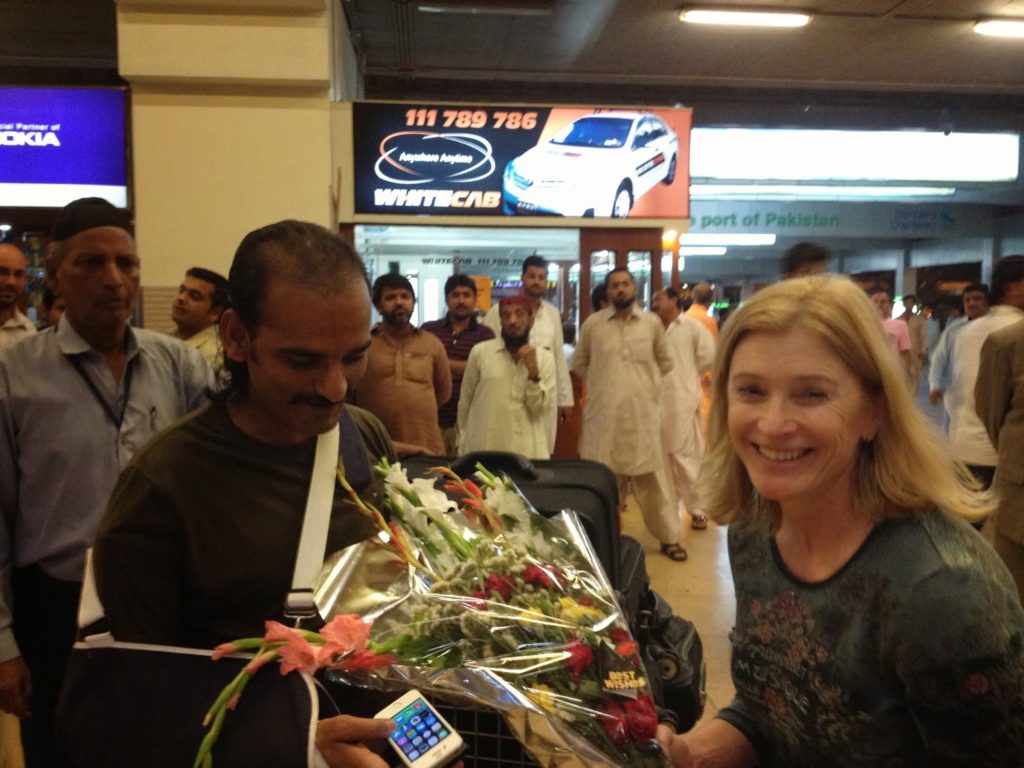
A warm welcome in Karachi at 3 am. Thanks Mushtaq!
Welcome to Karachi
If you are fortunate enough to experience Pakistani hospitality, it can be overwhelming. On my most recent arrival in Karachi, my Sindhi journalist colleague Mushtaq Sarki met me at the airport. With flowers. At 3.a.m. “This is our tradition,” he explained. When we later realized my son had left his I-Pad on the Turkish Airlines plane, Mushtaq worked his contacts at the airport and the Marriott hotel in Karachi dispatched a car to retrieve it. What are the chances of that happening in any other country? Another aspect of the hospitality tradition is showering the guest with gifts, so pack a generous number of gift items from your home country to reciprocate.

Awesome women journalists in Karachi. (courtesy US Consulate)
Instant City
Before visiting Karachi, I highly recommend reading “Instant City,” a book by NPR reporter Steve Inskeep that explains why the place is such a fascinating, hot mess. Even if all you see is the streetscape from a fast moving van, armored car or taxi it’s a cultural overload of donkey carts and brightly painted buses and trucks.
My first trip to Karachi included one day when the streets were eerily empty. The city was on lockdown due to the latest violent outbreak of a political feud. Our group ventured out anyway and our van was quickly followed by some menacing dudes on motorcycles, the kind who have a reputation for being possible assassins. Even on a “normal” day, traffic is always unpredictable as police shut down random streets for constantly shifting security reasons.
Like people in my hometown of Los Angeles, folks here understand when you are late to an event because of traffic. Perhaps for this reason, people have a tendency not to plan ahead and do things on spur of the moment. Any invitation is likely to be followed by a hopeful “insha Allah,” which means “God willing.” Because of “load shedding” Karachi residents must endure hours of blackouts every day, and demonstrators frequently hit the streets to demand electricity, causing closures and traffic jams. My hotel had a generator that kicked in a couple of times a day.
With an adventurous American friend, I was fortunate to find a friendly hotel-approved cab driver who helped us escape the security cocoon long enough to have an elegant dinner at Okra and a night camel ride on the beach. He also alerted us when it was time to cut the camel ride short because “people are talking bad about you.” Don’t question these warnings and stay safe.
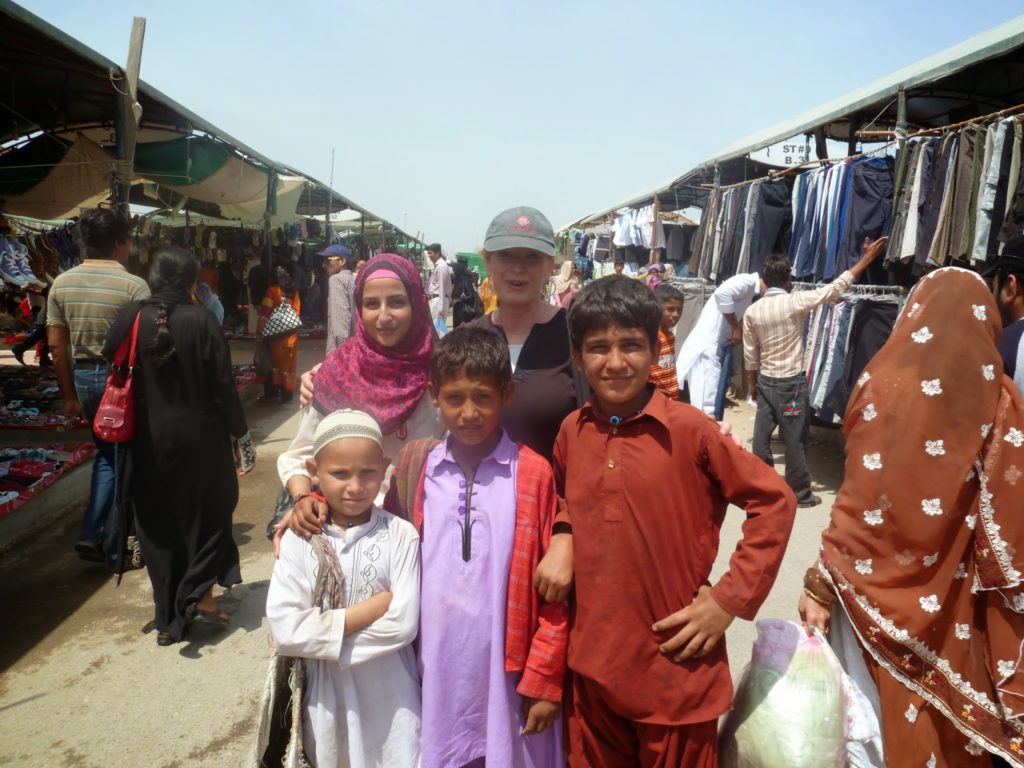
Shopping buddies helped me navigate the (now-closed) Sunday market in Defense
Standing Out and Fitting In
Not all women in Pakistan cover their hair and, unless I’ve been invited to a mosque or other religious place, I don’t either. But I carry a scarf just in case. My blonde locks are a sure attention-getter, and it’s not always harmless curiosity. If your Pakistani host tells you it’s time to move out of an area, don’t question it. Many of your outings will be to places like the Port Grand mall, which requires passing through TSA-like security to enter the array of upscale shops and restaurants.
In 2012 I was able to shop for bargains in the stalls of the Sunday market in the upper class neighborhood of Defense, with translation and price-haggling assistance from a helpful journalism student. But marketplaces are frequent targets and this type of shopping was discouraged in 2014. I’ve been told the Defense market is no longer operating. In any case, you’ll want to visit a shop like Koel and buy a few shalwar kameez, the kaftan-like dresses (and shirts for the men) worn everywhere in Pakistan. You’ll get lots of compliments from Pakistanis who appreciate your willingness to embrace their culture.
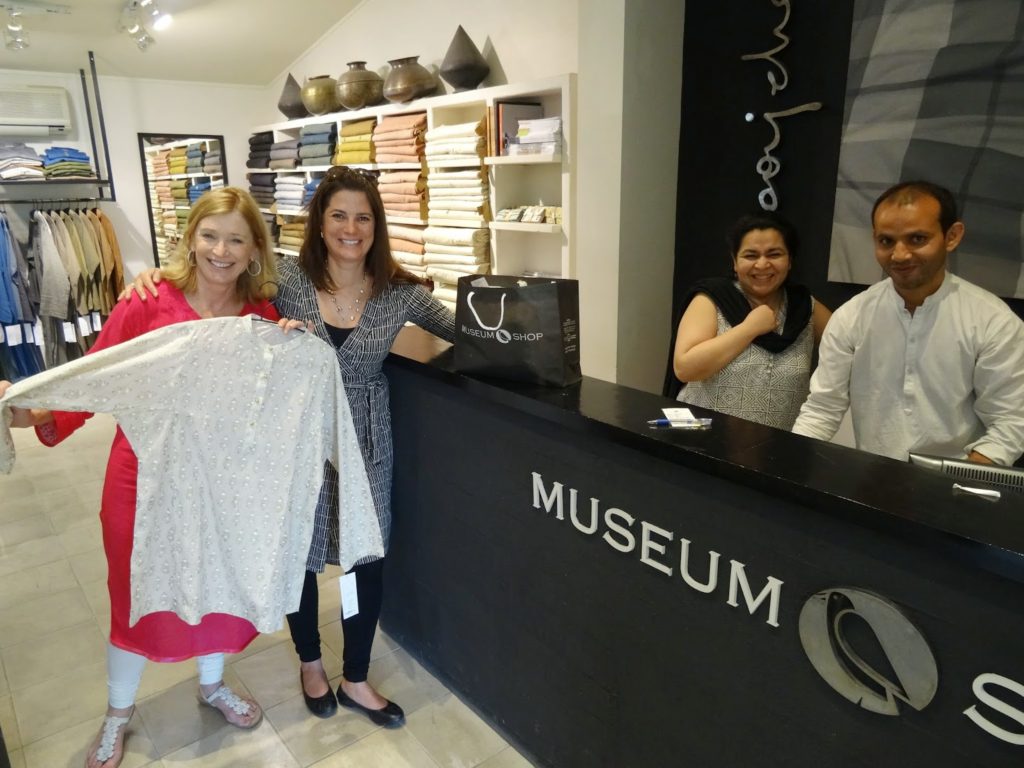
Shopping for Shalwar Kameez in Karachi
Lahore
This garden city takes pride in being a center of higher education. It’s greener and less dusty than Karachi, but security is still a concern. For a fun night out, friends led the way to the Food Street, a relic of times before the 1947 partition of Pakistan and India. The crumbling colonial-era buildings have been turned into food stalls serving local specialties, including every part of the animal. Pakistanis love meat and being a vegetarian here can be a challenge. Again, it helps to have friends looking out for you. My host made sure we were served the freshest food and not something that had been sitting around for a while.
My visit coincided with a planned political demonstration near the hotel where I was planning to stay, so I was moved to an extraordinary Heritage Hotel called The Moor. This place is so secure that you must be pre-cleared in order to stay here, but it’s so elegant you won’t believe the value prices. The room service, delivered by a friendly butler, was fine for breakfast and a light dinner, and I was able to walk to a nearby restaurant with a colleague.
Lahore has a number of historic attractions that I couldn’t fit in on this business trip and coming back to see the India border ceremony is definitely on my list for the future. (Update: the border crossing has also been a terrorist target. Use caution when visiting.)
Be careful at ATMS. A bank machine swallowed my friend’s card and the local branch of the issuing bank was no help. To get a replacement she had to contact customer service in the US on Twitter. Even though the exchange rate wasn’t very good, I opted for changing money at the airport or hotel.
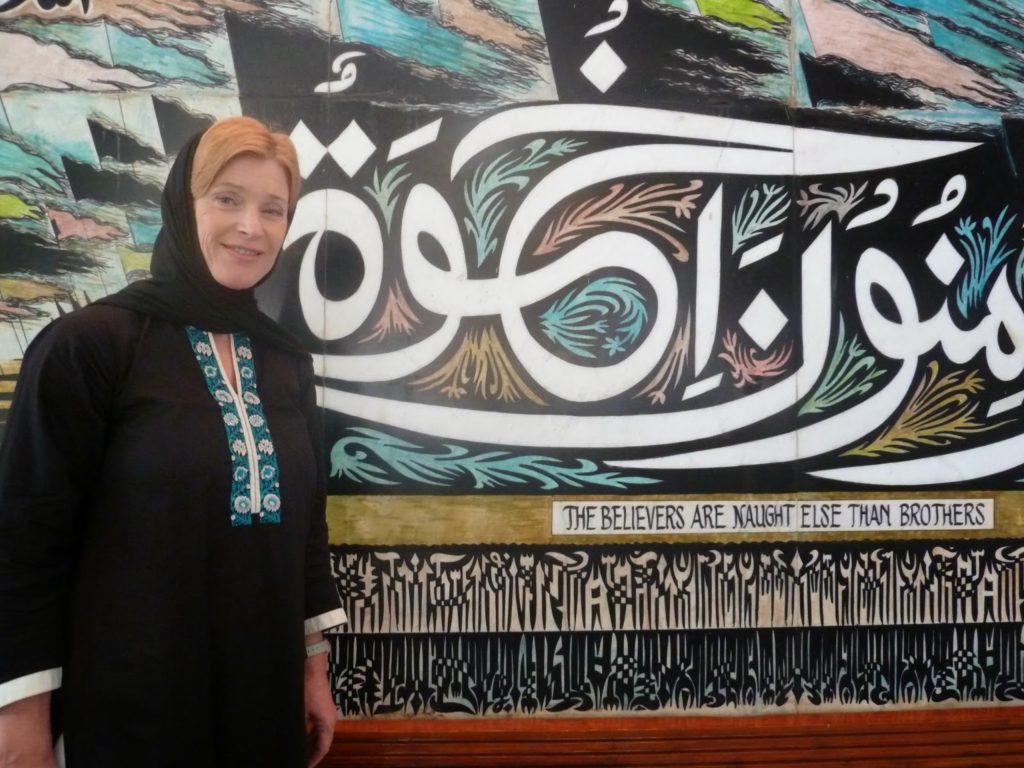
At the Great Faisal Mosque in Islamabad
Islamabad
When staying at the Marriott Hotel in Islamabad, be aware that his hotel was the target of a suicide truck bomb in 2008, killing at least 54 people, injuring several hundred and leaving a large crater in the hotel. Security is a concern every time you enter or leave. On my first visit, I was welcomed to the home of a Pakistani journalist and his charming family. They managed to get the kids’ homework done and put dinner on the table just in time for the nightly “load shedding” blackout, and we ate by candlelight.
The city is laid out in blocks with large undeveloped spaces and doesn’t invite the visitor to take a stroll anywhere. Again, you’ll rely on your local contacts to show you such highlights as the Great Faisal mosque, which is off limits to non-believers. All government buildings, and even NGOs, have dudes with automatic weapons to guard their gated compounds. Friends will guide you to places like Khaadi for upscale clothing, or outlets for more basic handicrafts with negotiable prices. Saidpur Village, while touristy, gives a glimpse of life outside the urban zones, where kids will eagerly jump in front of your camera and a nearby goat market shows off tonight’s dinner still on the hoof. To escape the city, plan a trip up the Margalla Hills to the Monal restaurant.
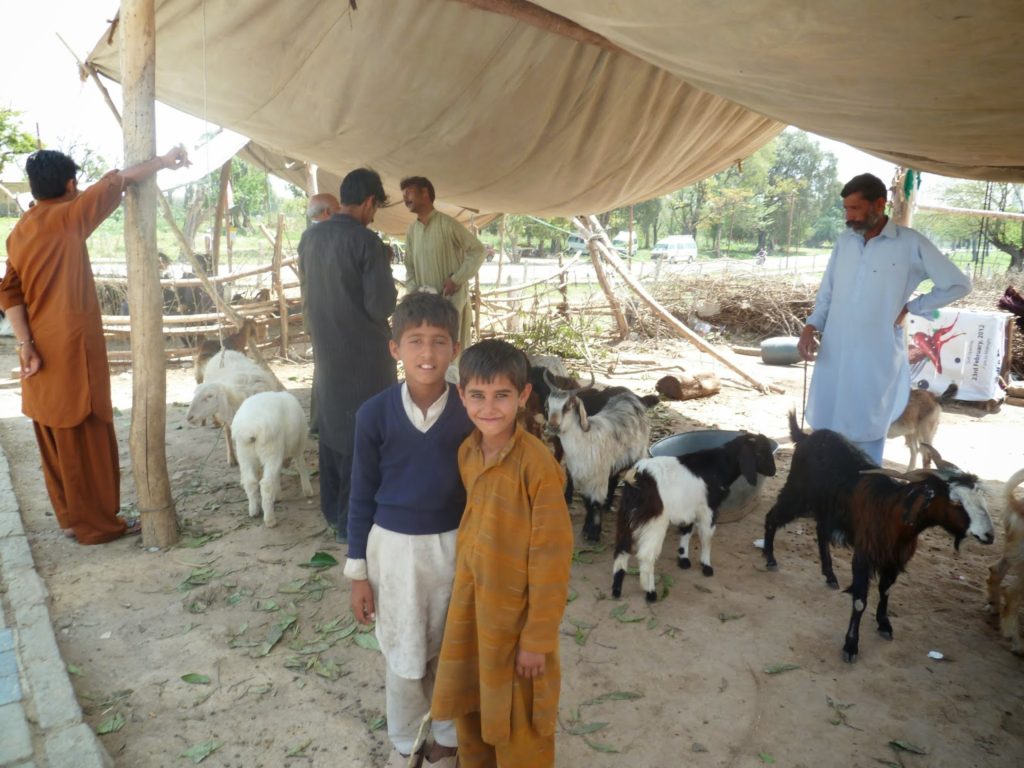
Welcome to the goat market at Saidpur Village
Peshawar
Some of the nicest and most welcoming Pakistanis I met in 2014 were journalists who had traveled from Peshawar to participate in our training in Islamabad. Peshawar is the capital of the Khyber Pakhtunkhwa, the tribal area in the northwest of Pakistan. As of this writing, it is far too dangerous for an American traveler to take advantage of their warm invitation to visit their beautiful and often violent city in the foothills of the Himalayas. But someday… insha Allah.
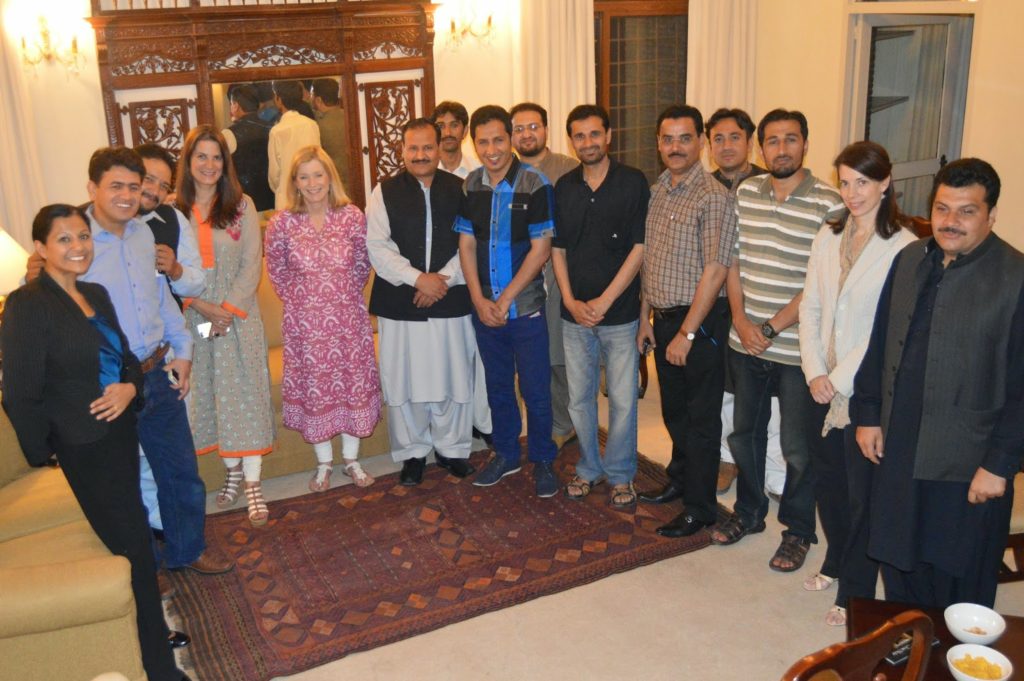
Meeting journalists from Peshawar in Islamabad (courtesy Linda Roth)
Want more travel tips to get off the beaten path — and stay safe? Like @strangersinthelivingroom on Facebook, and sign up for the occasional email when there is a new post. Follow @terryanzur on Instagram and Twitter.

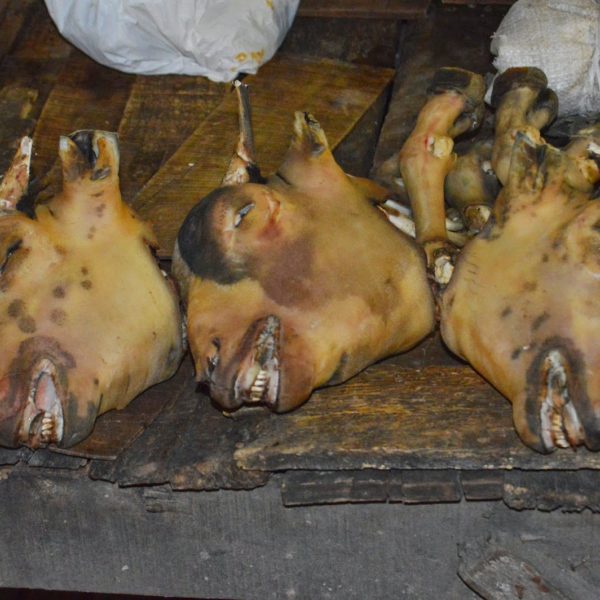
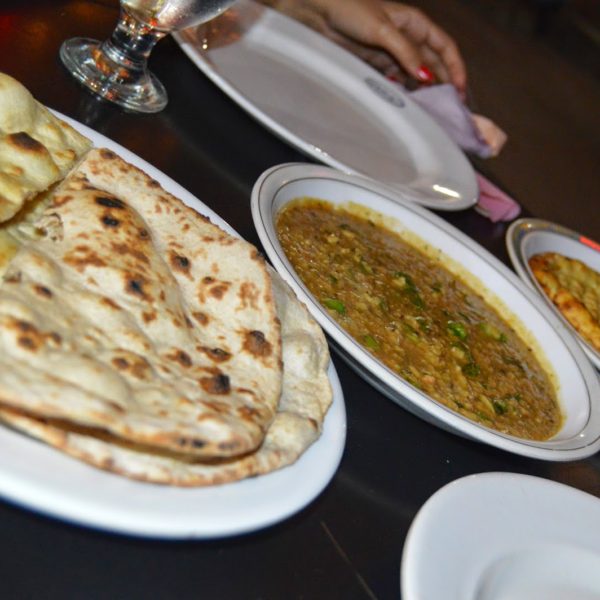
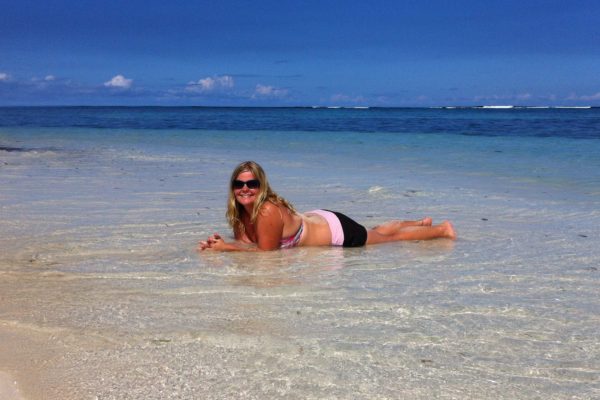
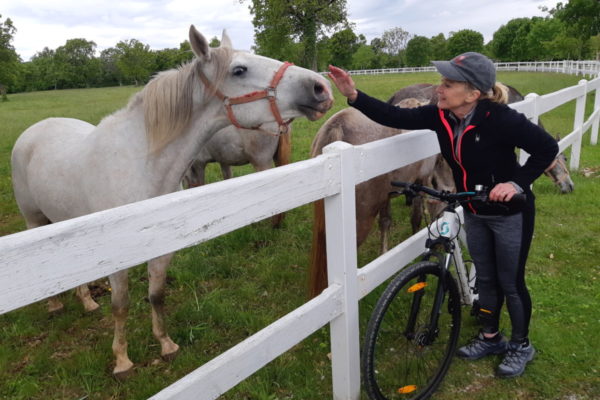

1 comment. Leave new
[…] to be writing this post about Europe. I’ve travelled under US State Department protection in Pakistan, and also blogged about staying safe in destinations like Egypt and Jordan. Basically, I advocate […]